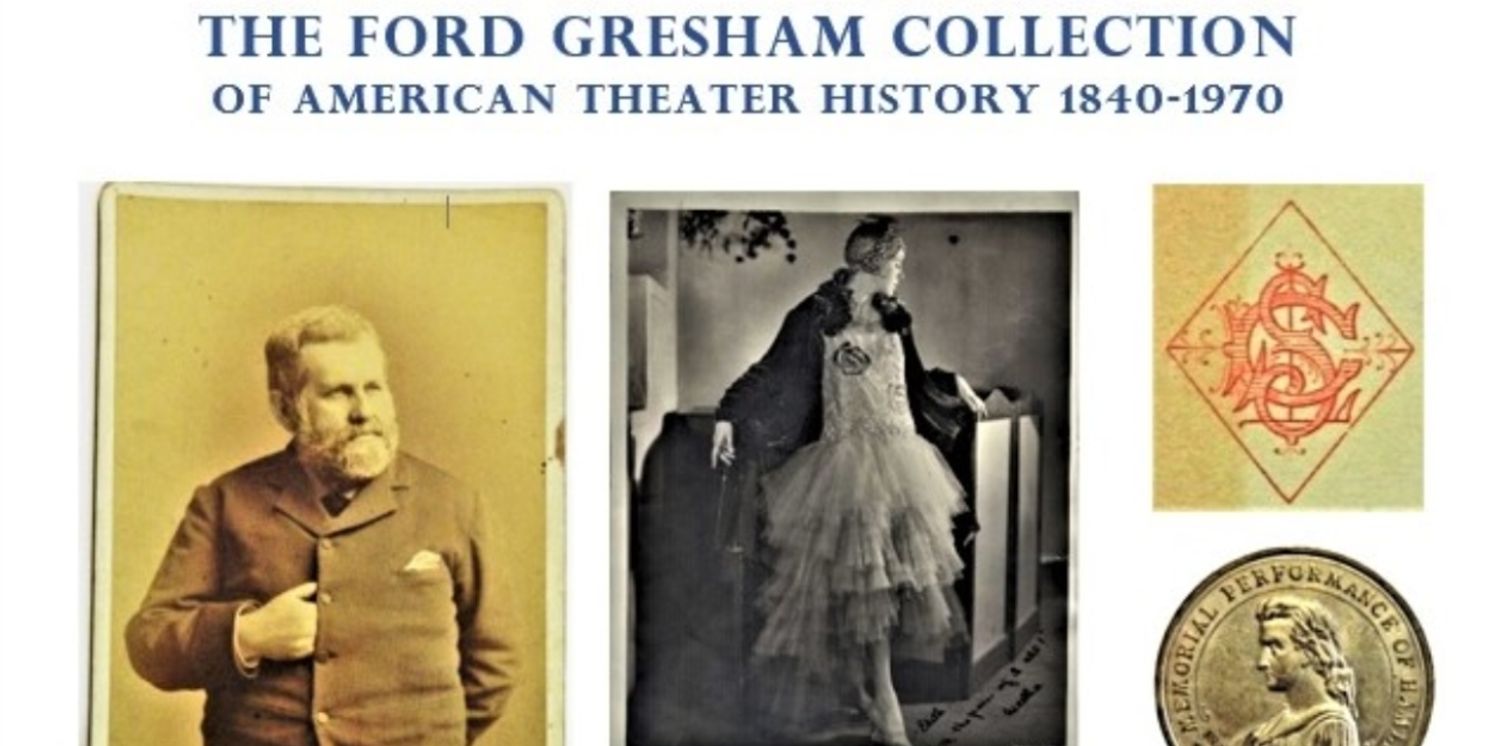Ford Gresham Collection of American Theater Will Be Highlight of Swann Auction in September
Viewing of the collection will commence in the week before the auction on September 28th.

Rare Nest Gallery will present a highly important archive of American theatrical history spanning 1840-1970. The Ford Gresham archive was collected by and passed down through four generations, beginning with impresario John T. Ford, owner of the landmark Ford's Theatre in Washington, D.C., and ending with a direct descendant. Rare Nest has announced consignment of the Ford Gresham Collection with New York's Swann Galleries Auctioneers. Viewing of the collection will commence in the week before the auction on September 28th.
The archive comprising over 1,300 pieces includes substantial examples of 19th and 20th century photography, manuscripts, scrap books, correspondence (with notables including Samuel Clemens, Richard Rogers), contracts, autographs, press clippings, birth and death certificates and much more. Physical artifacts include ceramics, engraved silver and posters. Together, the Ford Gresham Collection illuminates the professional and personal lives of a dynasty of American theater.
The physical history of the material includes eight owners and contributors over 140 years. Originating in the Baltimore home of John T. Ford, the collection was added to by Ford's daughter Martha Ford Gresham and her spouse Herbert Gresham, both of whom were deeply involved in 19th century American and British theatre. The third generation - sister and brother Edith Ford Gresham and Harry Ford Gresham - accumulated in a modern fashion. Edith, a talented character actress, became steward of the collection. Upon her death, the archive went to sister Martha Ford Gresham Kiar. Last, the material went to Martha's son, the gifted Chicago photographer and designer Peter Kiar.
Edith Ford Gresham - The Collection's Major Caretaker:
1897, Manhattan - 1976, Riverdale
Edith Gresham's incredibly diverse career ranged from prep school performances (as Romeo) to Broadway to radio and television (The Phil Silvers Show, others) to film. Her breakthrough role was playing Sadie Clarence in 39 East by Rachel Crothers (in 1919 on Broadway and reprised in a lost silent film in 1920).
Edith began as an ingénue eventually settling in as a go-to character actress. She was often called upon to replace short-lived original performers. Edith helped define the roles of Aunt Eller in Oklahoma (Broadway and travelling) and the outlandish Countess de Lage in Clare Booth Luce's classic The Women. In all, Edith has at least twelve Broadway credits through 1966 (The Caucasian Chalk Circle).
Considering her grandfather and father's theatrical management it is somewhat surprising that Edith was proud of her participation in the Actor's Strike of 1919 which led the way for labor reforms and helped to cement Actors Equity as a bargaining and governance powerhouse in the entertainment industry.
During the period of World War II and after, Edith organized and supported charitable programs for refugees and promoted bond drives. Her sub-collection includes numerous receipts and moving letters of thanks to the Oklahoma company from war survivors and refugees.
A dedicated career actress, Edith remained single throughout her life.
Videos

